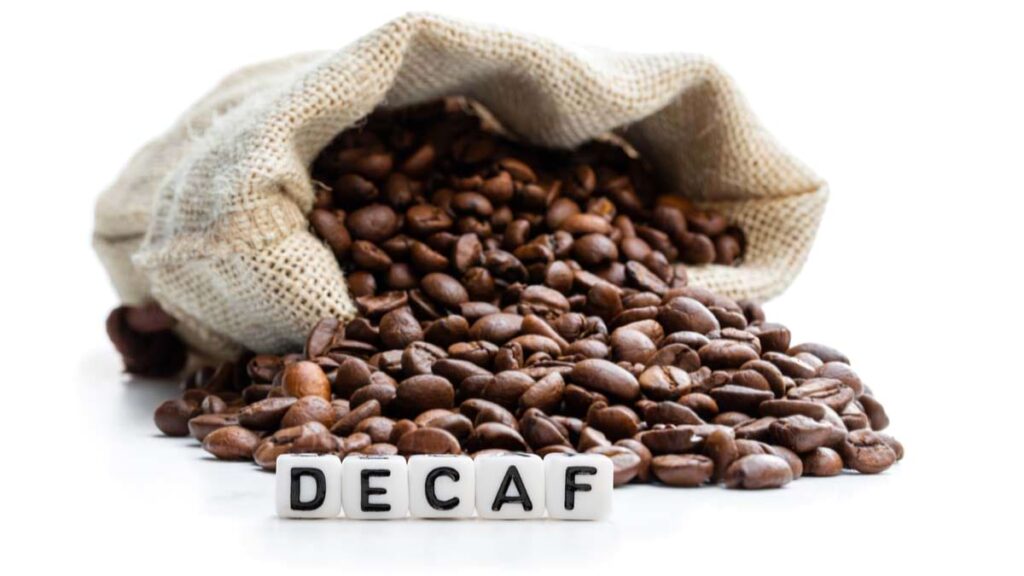For many of us, coffee is more than just a beverage—it’s a ritual, a comfort, and often a necessary wake-up call. But what happens when you love the taste of coffee, yet want (or need) to skip the buzz? Enter decaffeinated coffee, a popular alternative that’s gained both fans and skeptics.
Is it a healthy, stress-free substitute—or a nutritionally hollow imposter? Let’s break down the pros, cons, and myths surrounding decaf, so you can decide for yourself whether it’s your new best friend or a hidden foe.
What Exactly Is Decaffeinated Coffee?
Decaf coffee is made from regular coffee beans that have had at least 97% of their caffeine removed. The process can vary (more on that in a moment), but the end goal is the same: to deliver the flavor of coffee with significantly less of the stimulating effect.
The Pros of Decaffeinated Coffee
☕ 1. Less Jitter, Same Flavor
Decaf offers the best of both worlds for those who are sensitive to caffeine but love the taste of coffee. No racing heart, no anxiety spike—just smooth sipping.
☕ 2. Better Sleep
If you’re a late-afternoon or evening coffee drinker, decaf lets you indulge without compromising your sleep quality.
☕ 3. Gentler on the Digestive System
Caffeine can irritate the stomach lining and increase acid production. For those with acid reflux, gastritis, or IBS, decaf is typically easier on digestion.
☕ 4. Rich in Antioxidants
Contrary to popular belief, decaf coffee still contains plenty of antioxidants—especially polyphenols—which support heart health and protect against oxidative stress.
☕ 5. Suitable During Pregnancy or for Certain Medical Conditions
Many doctors recommend reducing or eliminating caffeine for pregnant women, people with high blood pressure, or those dealing with anxiety. Decaf provides a safe alternative.
The Cons (and Common Concerns)
⚠️ 1. Chemical Processing Methods
One of the biggest criticisms of decaf is the use of solvents like methylene chloride or ethyl acetate in some decaffeination processes. While the amounts used are considered safe by health authorities, some consumers prefer organic or Swiss Water Process decaf, which avoids chemicals altogether.
⚠️ 2. Not 100% Caffeine-Free
Yes, decaf still contains a small amount of caffeine—usually around 2–5 mg per cup (compared to 70–140 mg in regular coffee). While this is minimal, it can still affect those who are extremely sensitive to caffeine.
⚠️ 3. Slightly Altered Taste
Some coffee lovers claim decaf has a flatter or slightly more bitter flavor due to the decaffeination process. However, high-quality decaf beans and improved technology are closing that gap.
Decaf vs. Regular: Nutritional Face-Off
| Nutrient/Property | Regular Coffee | Decaf Coffee |
|---|---|---|
| Caffeine | 70–140 mg | 2–5 mg |
| Antioxidants | High | Slightly lower, but still high |
| Acidity | Higher | Lower |
| Effect on Sleep | Can disrupt | Minimal impact |
| Heart Rate/BP | Can increase | Typically neutral |
Is Decaf Coffee Healthy?
In short: Yes, especially when consumed in moderation. Decaf still provides antioxidants and may reduce the risk of certain diseases (like type 2 diabetes, neurodegenerative disorders, and some forms of cancer) just like its caffeinated cousin. It’s a great option for those who want the ritual and taste of coffee without the nervous energy.
Friend or Foe? Final Verdict
✅ Friend—with a few caveats.
If you choose high-quality decaf, especially those processed via the Swiss Water Method or labeled organic, it can be a healthful, enjoyable part of your day. It’s especially valuable for people who want to protect their sleep, manage anxiety, or simply cut back on caffeine without saying goodbye to coffee altogether.

So, if you’re considering making the switch (or just mixing decaf into your daily routine), you can sip confidently—knowing that decaf coffee is far more friend than foe.
Are you team regular, team decaf, or a bit of both?
Share your thoughts and favorite brews below!

